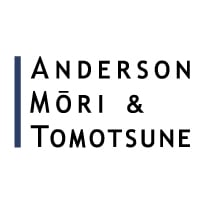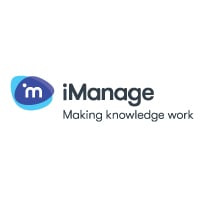

Deputy general counsel – global legal, tech and innovation | JERA







Angela Yuen
Deputy general counsel – global legal, tech and innovation | JERA
Team size: Approximately 132 members
What are the most significant cases or transactions that you have been involved in over the past year?
A key part of my mandate is to oversee the global legal function of the JERA Group companies, which is comprised of approximately 60 members situated across the US, Australia, Singapore, UAE, the UK and Europe. My responsibilities include: (i)overseeing the global legal advisory function to ensure legal teams are strategically aligned with business goals and operations; (ii) support international subsidiaries in their corporate governance; (iii) helping to strengthen the compliance frameworks for major international subsidiaries to promote preparedness and awareness; (iv) liaise with local heads of legal to build a collaborative and cohesive global legal function that is a trusted partner to the business.
Since joining JERA in 2017, I worked with CEOs to recruit heads of legal and helped to build all of our key international subsidiaries’ legal function. I have actively contributed to the growth of our legal function at a steady pace from 1 international subsidiary having a single legal counsel to today’s 8 international subsidiaries with approximately 60 members. During this past year, I have also strengthened the legal teams for JERA’s MEA and the UK subsidiaries through recruitment and connecting them with more mature subsidiaries. I promoted global talent mobility by facilitating various exchanges and secondments of members between subsidiaries and HQ for professional training and development. Additionally, I continued building a strong network of support and knowledge exchange between the leadership and working members of legal functions for JERA HQ and international group subsidiaries, through our annual Global Legal Forum (that I founded in 2021) and various knowledge management working groups.
I have worked actively to further strengthen JERA Group on legal, governance, compliance and ESG matters connecting executives and legal members with internal stakeholders as well as external industry experts, academic institutions, professional bodies and peer organisations. For examples, I facilitated several exchange meetings between legal and compliance teams of JERA and Bayer to share best practices and initiatives.
What innovations have you made to the way your legal team works in the past year?
To lead the way in Japan and support JERA’s strategic direction, I have been spearheading the digital transformation of the legal function responsible for delivering initiatives that leverage technology and innovation to improve efficiency and enhance the value of legal services. The vision is to position the legal function as a world class high-impact strategic partner to the business. Execution of this vision begun in 2022 with the establishment of a dedicated legal operations team whose key mandate is to deliver operational excellence and digital transformation of JERA’s legal function. Whilst Legal operations is a relatively mature discipline in the US, Europe and Australia, the concept is still at its infancy in Japan, and JERA has been leading the change with assembling a necessary talent for a legal operations team as well as our activities to raise awareness and increase momentum of positive change in the Japanese legal industry.
Working with the leadership team in legal, we develop a strategic roadmap (reviewed annually) designed to translate the strategy into actions with the following target outcomes: data-driven decision making, optimised legal processes, expanded team skillsets; and converting legal knowledge into an enterprise asset.
That FY2023/FY2024 strategic roadmap was fueled by four bedrock initiatives such as the implementation of a new tech-enabled matter intake, triage and management process; delivery of a skills mapping framework to proactively identify skill gaps and inform training and hiring decisions; roll out of an Internal Client Portal (ICP) to provide more transparency to, and centralise communications with, the business about active matters; and the implement a framework and strategy for digitally enabled knowledge management,
Rolling out new processes and technology for matter intake and management has led to a steady increase of matter requests via intake up 7% over the last year, a reduction in request time-to-assignment (TTA) from 95 days to 6 days; a reduction of 35%, lawyer time freed up; lawyers can focus on value-add activities and matters. The skill mapping exercise allowed the legal department to identify a skill gap in energy regulatory expertise, which resulted in the hiring of new expertise and started and internal upskilling process ahead of urgent needs. The rollout of ICP has reduced TTA, reduced the back-and-forth with the business significantly, and has improved the satisfaction survey scores.
Furthermore, having a clear and actionable framework and strategy helped the legal team prioritise its key initiatives to establish a self-sustaining legal KM capability. This includes cataloguing and optimising key knowledge management processes, leveraging functions and features of existing technology, employing metrics, addressing capacity concerns and challenges to ensure the team has time to prioritise KM activities, and introducing an incentive model to drive required new behaviours.
What is a cause, business-related or otherwise, that you are passionate about, and why?
I am an advocate for D&I, female empowerment, sustainability and legal tech innovation because these are topics aligned with the core values that inform my decision criteria.
I have actively and deliberately volunteered my time to advocate for greater diversity and inclusion in corporate Japan, promotion of female talent to leadership positions, sustainability and energy transition, and the adoption of legal tech and innovation.
I have participated in various panels, roundtables and as guest lecturer and speaker at events and programmes.
Are the effects of AI on the legal world overplayed, or underplayed?
The effects of AI on the legal world cannot be overplayed. The impact of AI on the legal profession is profound and multifaceted affecting everything from transforming legal practice methods, enhanced efficiencies, improved decision making and legal strategy, and risk mitigation to ethics, bias and career trajectories.
At JERA, we see immense opportunities for generative AI to democratise legal knowledge and empower both the legal team and business. I spearhead and drive the collaboration between Legal and JERA’s ICT team to develop and implement a series of generative AI powered legal use cases. One part of this larger programme of work is legal specific use cases geared towards improving our knowledge management. We aim to elevate the standard of knowledge management and enable our team to concentrate on providing strategic advice, support, and value to JERA’s business by freeing them from as much non-substantive work as feasible.
The strategy is to leverage GenAI to elevate the legal team’s knowledge asset quality, accuracy and consistency of output and processes to a new level of efficiency. While there is benefit in creating, updating, and sharing knowledge, it historically came with a high admin overhead. We are prototyping how we can use Generative AI to reduce or remove overhead and in March 2024 we successfully rolled out enterprise wide our first AI-driven virtual assistant who can facilitate legal knowledge transfer by answering queries, provide information about specific legal topics, and guiding users to relevant resources within the company. We are now working on a second AI-driven virtual assistant who will answer queries and provide information about JERA’s internal governance topics and go a step further to automatically create internally prescribed forms and documents based on the virtual assistant’s interaction with the user and knowledge output.